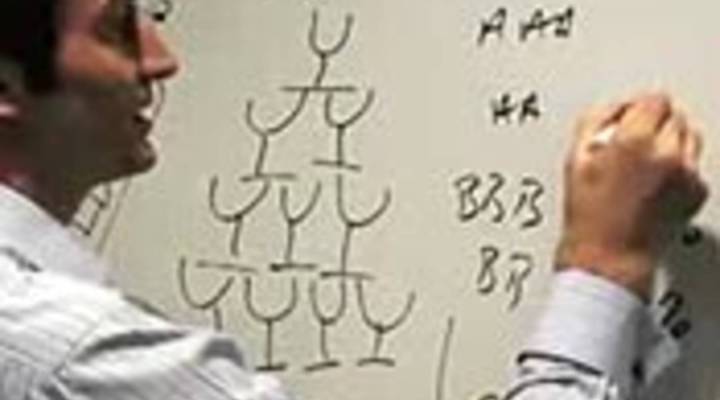
Breaking down the bad bank plan
Breaking down the bad bank plan

TEXT OF STORY
Paddy Hirsch: Last weekend, we talked to our own Bob Moon about proposals for nationalizing banks in this country. Basically, Uncle Sam would become the CEO of a number of troubled banks.
Well the solution du jour — or at least du week — is now something called a “bad bank,” and you’re likely to hear that term a lot over the next week.
I think we can all agree the industry needs a spanking, but we wondered exactly what purpose a bad bank would serve, so we went to Marketplace senior editor Paddy Hirsch.
Paddy Hirsch: Well, let me answer that with an example. One I like is the story of the Victorian story about the family with a crazy old uncle. This old uncle is giving them problems so they go and put him in an asylum. And that’s really what a bad bank is; it’s taking stuff it doesn’t want and locking it in a box and it’s keeping it’s fingers crossed.
Essentially, the government would go out and buy all the stuff that banks don’t want on their books and hold onto it in a separate “bad bank.” But Paddy says there are a couple of big issues to consider.
Hirsch: Firstly, this is taxpayer money that we’re talking about. We don’t know how much or how bad they’re going to be down the line, so we don’t know how big the bill is going to be. I mean they’re talking about between $1 trillion and $3 trillion. It could conceivably become a lot bigger than that.
And the downsides don’t end there.
Hirsch: How do you go out and value these assets? The government’s going to have to go out and say, “Well, we think this mortgage-backed security is worth this amount” and there’s going to be a negotiation. Either the taxpayer’s going to get ripped off because we’re paying too much for these securities or the bank’s going to get hammered because it’s going to be paying too little, which means it has to write down the value of all those other like securities.
And what if your mortgage is one of the ones that ends up inside the “bad bank?”
Hirsch: The great thing about this is it gives the government carte blanche to go and deal with those loans themselves. So the government could go and say, “Let’s help you out with that loan, Mr. Homeowner. We’ll help you with a repayment schedule or we’ll adjust your rate.”
Paddy tells us the other upside is that with all the bad stuff taken off the banks’ books — those “toxic assets” we hear so much about — banks could start acting like banks again.
Hirsch: And that’s going to allow them to go on and do what they do best, which is to make savings and loans and help people with their investments, and hopefully that will reinvigorate the economy down the line. The crazy uncle could in fact have a complete recovery.
There’s a lot happening in the world. Through it all, Marketplace is here for you.
You rely on Marketplace to break down the world’s events and tell you how it affects you in a fact-based, approachable way. We rely on your financial support to keep making that possible.
Your donation today powers the independent journalism that you rely on. For just $5/month, you can help sustain Marketplace so we can keep reporting on the things that matter to you.


















